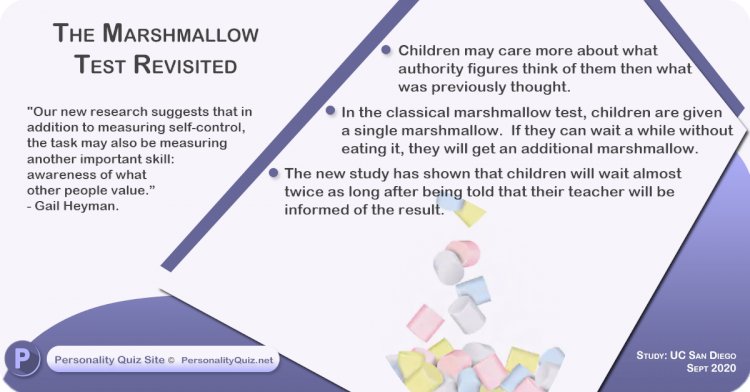The marshmallow test revisited
Children may care more about what authority figures think of them then what was previously thought.

by UC San Diego
Main titles
- Is the marshmallow test simply about self-control, or are other factors at play also?
- In the classic marshmallow test, children are given a single marshmallow. If they can wait a while without eating it, they will get an additional marshmallow.
- Research has shown that the ability to delay gratification is predictive of several positive life outcomes in the future, such as greater tolerance to stress and higher SAT scores.
- The new study has shown that children will wait almost twice as long after being told that their teacher will be informed of the result.
- "Reputation management," comes into play.

“The classic marshmallow test has shaped the way researchers think about the development of self-control, which is an important skill. Our new research suggests that in addition to measuring self-control, the task may also be measuring another important skill: awareness of what other people value.” - Gail Heyman.
- Children waited longer to eat the marshmallow when they were told that their teacher would find out than when they were told that their peers would find out.
- The research suggests that 3-4-year-old children value social rewards and care more about boosting their reputation than previously thought.
Source: UC San Diego

 vneo
vneo 











